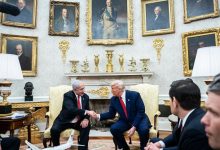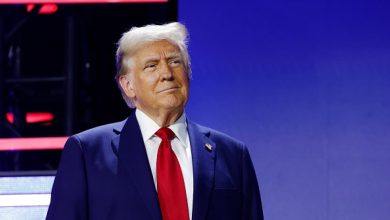Global Markets Rattle as Trump Launches Sweeping Trade Offensive
World leaders urge dialogue but warn of retaliation following historic U.S. tariff hikes targeting China, EU, Japan, and more.
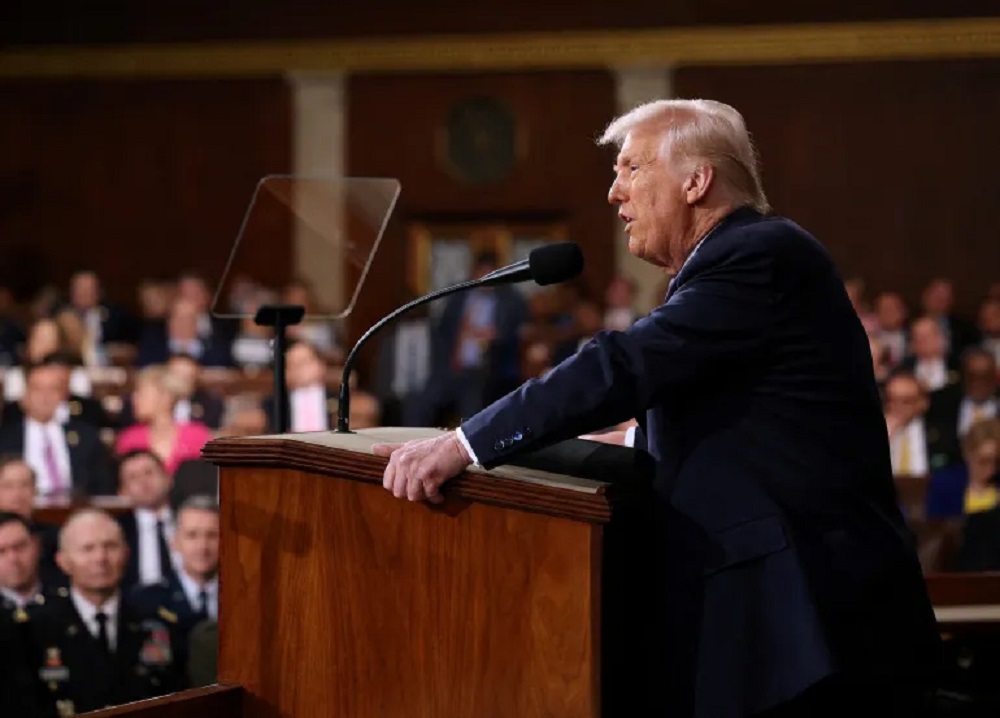
Watan-U.S. trade partners threatened to respond while also prioritizing dialogue with Washington on Thursday, a day after President Donald Trump launched a massive trade offensive that caused global stock markets to decline and raised fears of severe consequences for the global economy.
Following the measures, which the U.S. President described as a “declaration of economic independence,” financial markets began reacting negatively.
In Asia, Tokyo’s stock exchange dropped by nearly 3% at closing, while in Europe, Frankfurt fell by 2.45% at opening, Paris by 2.15%, and London by 1.44%.
The U.S. President said, “Our country has been looted, robbed, raped, and destroyed by nations near and far, allies and enemies alike,” before listing the trade partners involved.
The White House’s protectionist offensive, unprecedented since the 1930s, includes additional tariffs of at least 10% on all imports, with higher rates for countries considered particularly hostile in trade matters.
The increase is enormous for China, whose products will now be subject to a new 34% import tax, in addition to the previously imposed 20% tariffs from Washington.
The European Union will face a 20% tariff, Japan 24%, India 26%, and Vietnam 46%.
The general 10% tariff is set to go into effect on April 5 at 04:01 GMT, while the higher tariffs will be implemented on April 9.
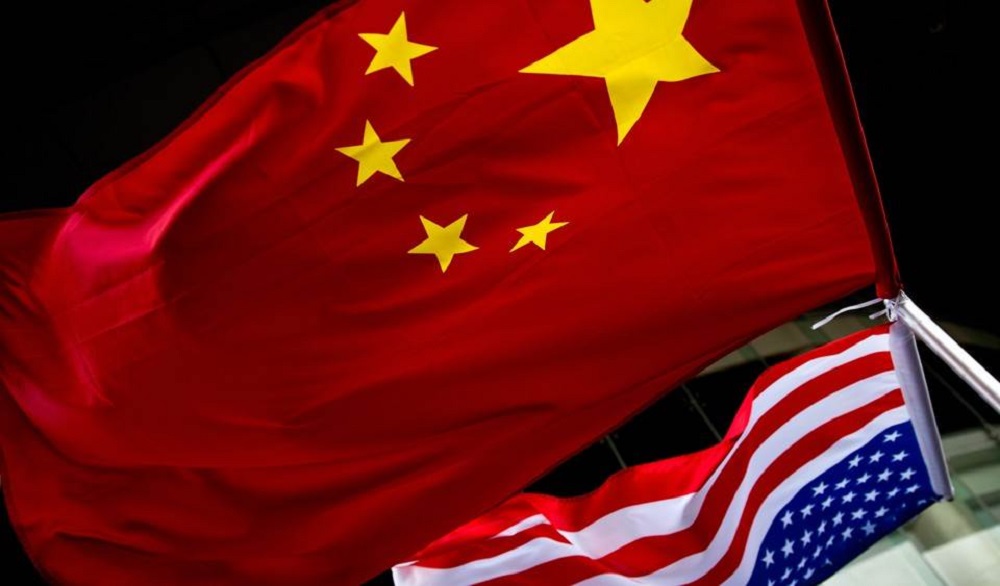
A Negotiated Solution
Responses ranged from calls for dialogue to threats of confrontation, but no country has announced a clear response yet.
Berlin announced Thursday that it supports the EU’s efforts to reach a “negotiated solution” with Washington. Paris did not rule out “targeting digital services” as part of a potential European response currently under discussion, including a meeting Thursday with representatives from the most affected sectors.
European Commission President Ursula von der Leyen kept the door open for negotiations with the U.S. on Thursday, saying a negotiated solution is possible, while also asserting that Europeans are “ready to respond.”
While some countries urged restraint and dialogue with Washington to avoid escalation, others harshly criticized U.S. policy.
Beijing urged Washington to “cancel” these tariffs immediately, calling for “dialogue” in the face of what it described as a threat to “global economic development,” according to the Ministry of Commerce.
The Japanese government believes its ally the U.S. may have violated World Trade Organization rules and their bilateral trade agreement. Australia condemned the measures against it as “not the act of a friend.”
Maurice Obstfeld, economist at the Peterson Institute for International Economics, said this is “a declaration of war on the global economy,” especially given the questions surrounding how the tax levels were determined.
These additional tariffs also aim to counter so-called “non-tariff” barriers to U.S. goods, such as health and environmental standards.
The White House announced Wednesday evening that some goods will be exempt: gold bars, pharmaceuticals, semiconductors, copper, construction timber, and energy and mineral products not found in the U.S.
Russia and North Korea were not included, as they are no longer considered major trade partners, according to a U.S. official.
U.S. Treasury Secretary Scott Beiscent warned countries affected by the new tariffs: “Relax, take the hit, and wait to see how things evolve, because if you respond, there will be escalation.”
Mexico and Canada also do not appear on the new list, as signatories to the free trade agreement with the U.S., they are subject to a different system.
However, both countries—like the rest of the world—will be affected by the additional 25% tariff on foreign-manufactured cars, which took effect Thursday morning.
The German automotive industry criticized the new tariffs, saying “everyone loses” as a result.
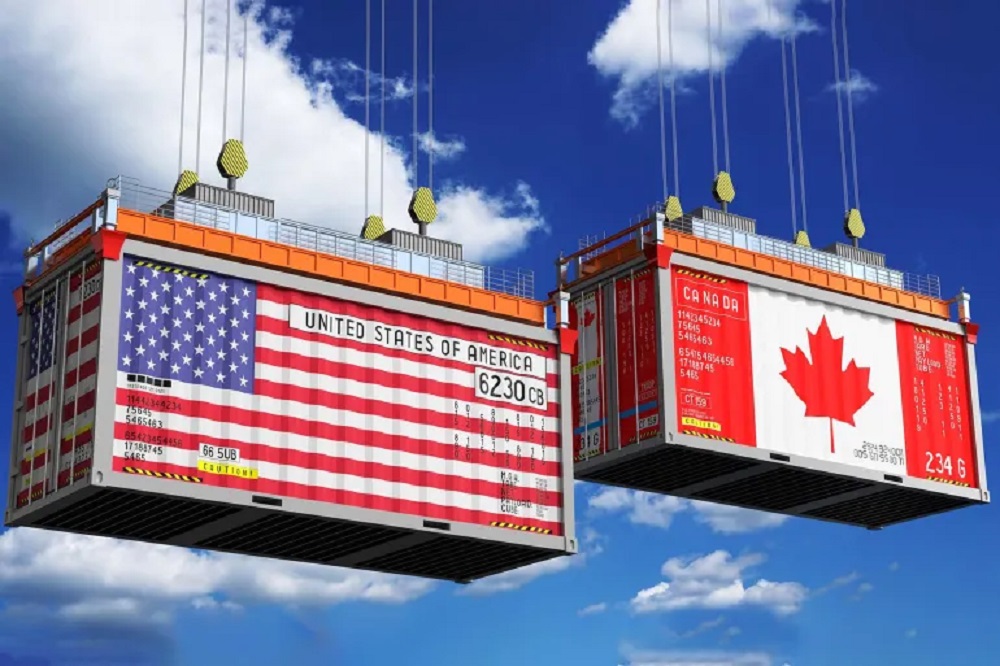
Staying Calm
President Donald Trump also imposed tariffs on steel and aluminum imports, which will lead to “countermeasures,” according to Canadian Prime Minister Mark Carney.
The U.K. was only moderately affected by the 10% tariff, as it is still negotiating a bilateral trade deal with Washington. However, Prime Minister Keir Starmer said Thursday that these U.S. sanctions will have an “impact” on the British economy.
Germany’s chemical industry, for which the U.S. is the largest importer, urged the EU to “stay calm.”
Donald Trump presents the tariffs as a magic wand that can boost American industries, rebalance trade, and eliminate the budget deficit.
But Senate Democratic leader Chuck Schumer warned that the protectionist offensive “will cost the average American household more than $6,000 a year” through higher prices for imported goods.


